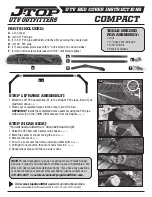
tent under 50 ppm; otherwise the emission
control system could be damaged.
!
Vehicles without a diesel particle fil-
ter: in countries where only diesel fuel with
a high sulphur content is available, you will
need to carry out your vehicle's oil change
at shorter intervals. More information
about the interval for oil change can be
obtained from any qualified specialist
workshop.
Usually you will find information about the
fuel grade on the pump. If you cannot find the
label on the petrol pump, ask the filling sta-
tion staff.
Information on refuelling (
Y
page 162).
Low outside temperatures
In winter months, diesel fuel with an improved
cold flow quality is available. In Europe, the
EN 590 standard defines various climate-
dependent temperature categories. Malfunc-
tions can be avoided by refuelling with diesel
fuel that corresponds to the climatic specifi-
cations outlined in EN 590. At unusually low
outside temperatures, it is possible that the
flow characteristics of the diesel fuel could be
insufficient. Accordingly, diesel fuel from
warmer areas may not be suitable for opera-
tion in colder climatic conditions.
i
Further information on country-specific
fuel properties can be obtained from oil
companies, e.g. at filling stations.
Flow improvers
To improve the low-temperature resistance of
diesel fuel, a flow improver can be attached.
The effectiveness of a flow improver is not
guaranteed for every fuel.
Only use flow improvers tested and approved
by Mercedes-Benz. During use, please
observe the information on operation.
Correct dosage and sufficient mixing are deci-
sive in improving low-temperature resistance
with the flow improver. Overdosage can
potentially even decrease low-temperature
resistance and must therefore be avoided.
Follow the manufacturer's guidelines on dos-
age.
Mix the additive into the diesel in good time,
before the flow characteristics of the diesel
become insufficient. Otherwise, malfunctions
can arise through heating the fuel system,
e.g. through parking in a heated garage.
More information about recommended flow
improvers can be obtained from any qualified
specialist workshop.
Fuel consumption information
H
Environmental note
CO
2
(carbon dioxide) is the gas which scien-
tists believe to be principally responsible for
global warming (the greenhouse effect). Your
vehicle's CO
2
emissions are directly related to
fuel consumption and therefore depend on:
R
efficient use of the fuel by the engine
R
driving style
R
other non-technical factors, such as envi-
ronmental influences or road conditions
You can minimise your vehicle's CO
2
emis-
sions by driving carefully and having it serv-
iced regularly.
The vehicle will use more fuel than usual in
the following situations:
R
at very low outside temperatures
R
in urban traffic
R
on short journeys
R
in mountainous terrain
R
when towing a trailer
i
Only for certain countries: you can find
the current consumption and emission val-
ues of your vehicle in the COC documents
(EU CERTIFICATE OF CONFORMITY). These
documents are delivered with your vehicle.
The consumption figures were in each case
based on the currently applicable version:
R
for vehicles that comply with standards
up to and including the EURO 4 standard,
390
Service products and capacities
Tec
hni
ca
ldata
Содержание CLS 2012
Страница 2: ......
Страница 3: ......
Страница 5: ......
Страница 29: ...26...
Страница 99: ...96...
Страница 227: ...224...
Страница 292: ...Useful information 290 Stowage areas 290 Features 303 289 Stowing and features...
Страница 321: ...318...
Страница 322: ...Useful information 320 Engine compartment 320 Service 324 Care 325 319 Maintenance and care...
Страница 355: ...352...
Страница 403: ...400...
Страница 404: ......
Страница 405: ......













































